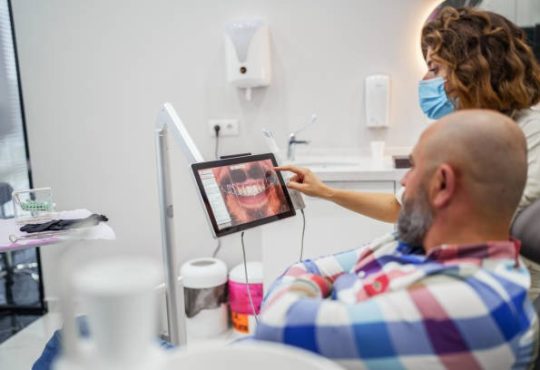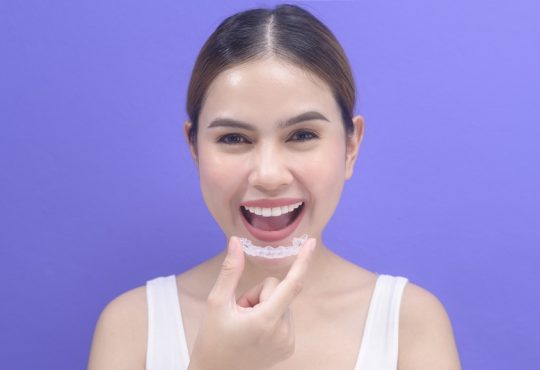
Which Substances Can Be Treated in Outpatient Addiction Centers?
Addiction is a serious issue affecting millions of people globally. It can range from mild to severe levels, with the object of desire varying wildly from substances like alcohol, methamphetamine, and marijuana to prescription drugs and even to behaviors such as gambling or internet addiction.
As individuals grapple with addiction, seeking professional help becomes crucial to overcome their struggle. Some of the substances commonly treated in outpatient addiction centers include:
1. Alcohol
Alcohol use disorders (AUDs) are prevalent and often require multifaceted treatment approaches:
-
Treatment Modalities: Outpatient alcohol treatment provides individual counseling, group therapy, and psychoeducation sessions to address various aspects of alcohol misuse. Individual counseling allows for personalized exploration of triggers, coping mechanisms, and underlying issues contributing to alcohol dependence. Group therapy offers peer support, shared experiences, and accountability, fostering a sense of community among participants.
-
Medication-Assisted Treatment (MAT): MAT involves the use of medications such as naltrexone, acamprosate, or disulfiram to support recovery from alcohol dependence. Naltrexone and acamprosate help reduce cravings and relapse risk by targeting the brain’s reward system. Disulfiram induces unpleasant reactions (e.g., nausea, vomiting) if alcohol is consumed, acting as a deterrent to drinking.
-
Family Therapy: Family involvement is crucial in addressing AUDs, as family dynamics and relationships can both contribute to and be impacted by alcohol misuse. Family therapy sessions provide a safe space for open communication, boundary-setting, and resolving conflicts. It also educates family members about addiction, enabling them to offer appropriate support and encouragement.
2. Opioids
Opioid use disorders (OUDs) are a significant public health concern, and outpatient treatment focuses on comprehensive care:
-
Medication-Assisted Treatment (MAT): MAT is considered the gold standard for OUD treatment and involves the use of medications like methadone, buprenorphine, or naltrexone. Methadone and buprenorphine are opioid agonists that reduce withdrawal symptoms and cravings, allowing individuals to stabilize their lives and engage in treatment. Naltrexone blocks opioid receptors, preventing the euphoric effects of opioids and reducing relapse risk.
-
Behavioral Therapies: Cognitive-behavioral therapy (CBT), contingency management, and motivational interviewing (MI) are commonly utilized in outpatient settings to address behavioral aspects of addiction. CBT helps individuals identify and modify maladaptive thought patterns and behaviors associated with opioid use. Contingency management incentivizes abstinence and adherence to treatment goals, reinforcing positive behaviors. MI enhances motivation for change and fosters self-efficacy, empowering individuals to make healthier choices.
-
Peer Support: Support groups like Narcotics Anonymous (NA) offer valuable peer support, encouragement, and accountability during the recovery process. Peer support helps individuals feel understood, accepted, and connected to a community facing similar challenges. It also provides opportunities for sharing experiences, coping strategies, and resources.
3. Stimulants
Stimulant use disorders, including cocaine and methamphetamine addiction, pose unique treatment challenges but can be effectively addressed through a combination of interventions:
-
Behavioral Therapies: Cognitive-behavioral therapy (CBT) is the cornerstone of treatment for stimulant use disorders, helping individuals identify and challenge irrational beliefs, manage cravings, and develop coping skills to prevent relapse. CBT focuses on restructuring cognitive distortions and teaching adaptive coping strategies to manage triggers and high-risk situations. Additionally, contingency management and intensive outpatient treatment offer tangible rewards for abstinence and adherence to treatment goals, reinforcing positive behaviors and motivation for change.
-
Motivational Enhancement Therapy (MET): MET is a client-centered, directive approach designed to enhance intrinsic motivation for change and increase readiness for treatment engagement. By exploring ambivalence about change, clarifying goals, and strengthening commitment to sobriety, MET empowers individuals to take active steps toward recovery. Through empathic listening, reflective feedback, and collaborative goal-setting, MET helps individuals overcome barriers to change and build confidence in their ability to achieve lasting recovery.
-
Relapse Prevention Planning: Relapse prevention strategies are essential components of treatment for stimulant use disorders, equipping individuals with skills and resources to identify early warning signs, cope with cravings, and effectively manage high-risk situations. By developing personalized relapse prevention plans, individuals learn to anticipate and navigate triggers, implement healthy coping strategies, and access support networks to prevent relapse and maintain long-term sobriety.
4. Benzodiazepines
Benzodiazepine use disorders require specialized treatment approaches due to the risk of withdrawal complications and the potential for long-term dependence.
-
Medically Supervised Tapering: Outpatient drug rehab NJ for benzodiazepine withdrawal can be challenging and even life-threatening in severe cases, necessitating gradual tapering under medical supervision to minimize discomfort and reduce the risk of complications. A structured tapering schedule, individualized to the individual’s needs and response to treatment, allows for a safe and gradual reduction of benzodiazepine dosage while managing withdrawal symptoms and minimizing relapse risk.
-
Psychotherapy: Psychotherapy, such as cognitive-behavioral therapy (CBT), dialectical behavior therapy (DBT), and trauma-focused therapy, addresses underlying issues contributing to benzodiazepine dependence and teaches individuals adaptive coping skills to manage anxiety, stress, and emotional dysregulation without relying on medication. By identifying triggers, challenging maladaptive thought patterns, and developing healthier coping strategies, individuals gain insight into their substance use patterns and learn alternative ways of coping with distressing emotions and situations.
-
Support Groups: Peer support groups provide a valuable source of encouragement, understanding, and validation for individuals struggling with benzodiazepine dependence. Whether in-person or online, support groups offer a non-judgmental space for sharing experiences, accessing information and resources, and receiving emotional support from others who have faced similar challenges.
5. Cannabis
Treatment for cannabis use disorders involves a combination of behavioral interventions, psychoeducation, and supportive therapies:
-
Cognitive-Behavioral Therapy (CBT): CBT helps individuals identify and challenge distorted thought patterns, beliefs, and behaviors associated with cannabis use. By increasing awareness of triggers, coping strategies, and the consequences of substance use, individuals learn to recognize and modify maladaptive patterns of thinking and behavior, thereby reducing cravings and preventing relapse.
-
Motivational Enhancement Therapy (MET): MET enhances intrinsic motivation for change by exploring ambivalence, addressing barriers to treatment engagement, and reinforcing personal goals and values. Through collaborative goal-setting, decisional balance exercises, and personalized feedback, MET helps individuals clarify their reasons for change, strengthen their commitment to sobriety, and develop confidence in their ability to achieve and maintain recovery.
-
Contingency Management: Contingency management offers incentives for abstinence and adherence to treatment goals, providing tangible rewards for achieving and maintaining sobriety. By reinforcing positive behaviors and milestones with rewards such as vouchers, prizes, or privileges, individuals are motivated to abstain from cannabis use, engage in treatment, and make progress toward their recovery goals.
Final Thoughts
The range of substances that are treated in outpatient addiction centers is extensive and holistic. They cater to commonly addictive substances like alcohol, illicit drugs like heroin, methamphetamines, and marijuana, and prescription medications like opioids, anti-anxiety meds, and stimulants. They also provide attention to somewhat overlooked elements such as tobacco addiction.






